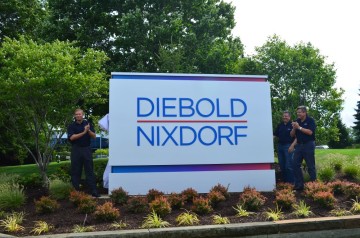 Fings ain’t wot they used to be, thanks to digital innovation and transformation, according to Tholons Services Globalization Index 2017” (TSGI) research report.
Fings ain’t wot they used to be, thanks to digital innovation and transformation, according to Tholons Services Globalization Index 2017” (TSGI) research report.
The report which ranks the Top 50 “Digital Nations” and Top 100 “Super Cities” Services Globalization (outsourcing) shows that the industry has been shaken at the very core as big industry leaders are grappling to align their business model to the new world of enterprise digital innovation and transformation.
The biggest leaders in services globalisation like India, Philippines, East Europe, China and Latin America, are starting to see most of their services commoditised in the next three to four years.
Clients are asking for transformational and innovative services involving mobility, analytics, cloud, social media, cyber security and digital marketing – services that traditional business models will be challenged to deliver.
The automation of work like applications management, infrastructure support, testing, business processes, self-service and customer relationship management is quickly reducing the need for manpower.
While most of the smaller countries in the top 20 will find it easier to adapt their model and be more agile in working with clients on digital innovation, however more than half of the workforce in IT/BPO sector in leading outsourcing locations will become irrelevant in coming few years unless significant reskilling is done. And for an industry this large, making this gigantic shift will be a challenge.
The Globalization industry has been knocked by digital forces. Robotics, Artificial intelligence, Social Media, Mobility, Big Data, Digital supply chain, Digital Trust, As a Service will continue to punch established players.
The report said that the outsourcing industry has been shaken at the core; big industry leaders are slipping from top positions:
- India, China, Philippines, Brazil and Mexico are the top ranked Digital Nations. Canada, Chile and Ireland are the new entrants to top 10 Digital Nations, along with Vietnam and Poland from earlier.
- four Cities from India (Bangalore, Mumbai, Delhi and Hyderabad) and Manila in Philippines continue to be in the top 5 of Super Cities but Manila has moved down to fourth position from previously held second position.
- Pune and Cebu City have moved out of top 10 Super Cities while Sao Paulo and Buenos Aires have moved in the list representing significant inroads made by Latin American Cities.
- Leaders like India, Philippines and China are being shaken by disruptors like Canada and Israel, while innovators like Brazil and Chile are going to collectively redefine the leadership for the next decade.
The opportunity of growing $2.4 trillion technology spend to $ 3.8 trillion by accelerated transition of legacy businesses to digital is not to be missed, the report said.
“It is good news for innovative startups, super cities and digital nation to claim the territory. An engaged focus in digital innovation at enterprise level will lead to emergence of new leaders. These new players clearly stand a great chance to be the winners given they are not saddled with legacy and big transformational effort and cost. We feel jubilant ringing the bell to dawn of certainty, opportunity and this new found world,” it adds.



















